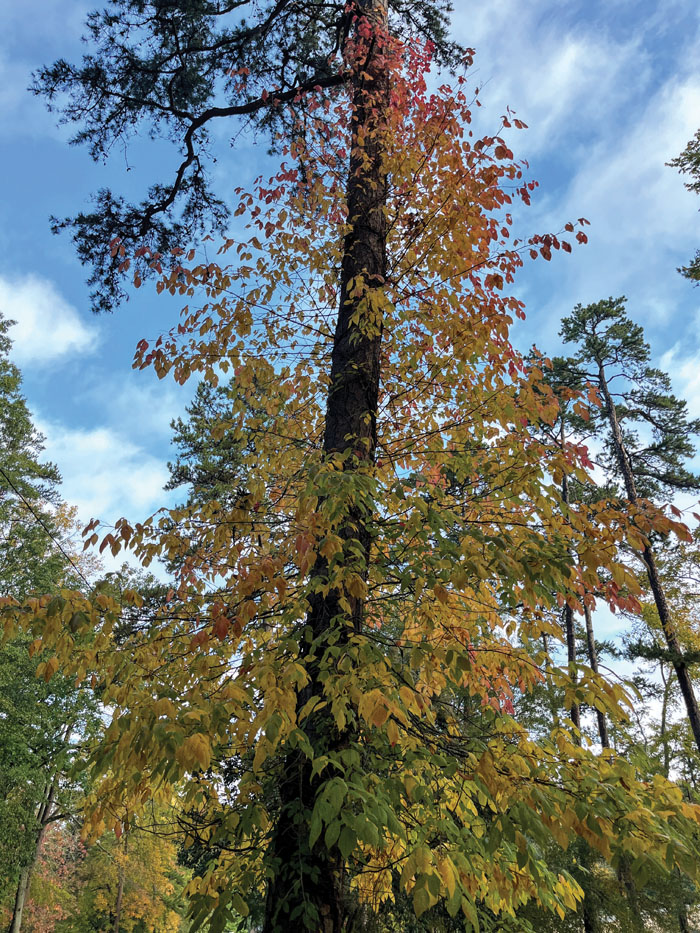Sarina Dellinger: Admiring the unloved
Published 12:00 am Saturday, October 15, 2022
By Sarina Dellinger
For the Salisbury Post
What is a weed anyway? It’s just a plant in a place that you don’t want. Different gardeners have different perspectives on weeds. For example, I love Virginia creeper. Others eradicate it from their properties. I want to use this article to admire the unloved plants that actually serve an important role in our ecosystem. Virginia creeper provides flowers for pollinators, berries for birds and leaves for caterpillars such as the Virginia Creeper Sphinx moth. It also puts on a spectacular fall color show by slowly turning bright red.
Another plant that most gardeners detest is goldenrod. With over 70 species native to North Carolina, don’t disregard this species due to preconceived notions. The pollen is too heavy to be wind-born and is not what causes most fall allergies, that’s ragweed, which happens to bloom at the same time. This plant has the last bit of nectar for fall butterflies and bees before winter. In any disturbed area this time of year you’re very likely to see this plant. Yes, some are aggressive spreaders, but others like the blue-stemmed goldenrod is happy to hang out quietly in a shady garden space.
Another very understandably unloved species is poison ivy. However, it serves important ecological roles in the environment. It provides berries for the birds, which is also how it returns back to your garden after you’ve eradicated it. The flowers are enjoyed by insects, it provides shelter to smaller animals, and herbivores such as deer feed on the leaves. My favorite thing about poison ivy is how it climbs trees and creates an illusion that the tree has an early, eye-catching fall color, but it’s really poison ivy which can be shades of bright yellow to red. Older vines can form long “arms” of branches that appear to be part of the tree. Look for the tell-tale sign of the thick and hairy vine climbing up from the ground. If you have a natural area on your property, consider leaving poison ivy for the multitude of benefits for wildlife.
The lowly frost aster is a humble workhorse in the garden. It doesn’t mind poor soil, full sun and will likely show up without gardeners even having to plant it. Being that it is a late-blooming flower, it’s a critical nectar source for pollinators in the fall. Leaving a few in important spots can help hold up other perennials and provide late-season flowers and seeds for birds. The next time you think about the unloved plants, we hope you’ll have a different perspective.
If you have questions about Hurley Park or want to know how to book events, please give us a call at 704-638-5298. Stay up to date with what’s happening at Hurley Park by following us on Facebook or Instagram @HurleyParkNC. To view a map or donate to Hurley Park, visit our website at salisburync.gov/hurleypark. Happy gardening!
Sarina Dellinger is public garden manager for Salisbury Parks and Recreation.







